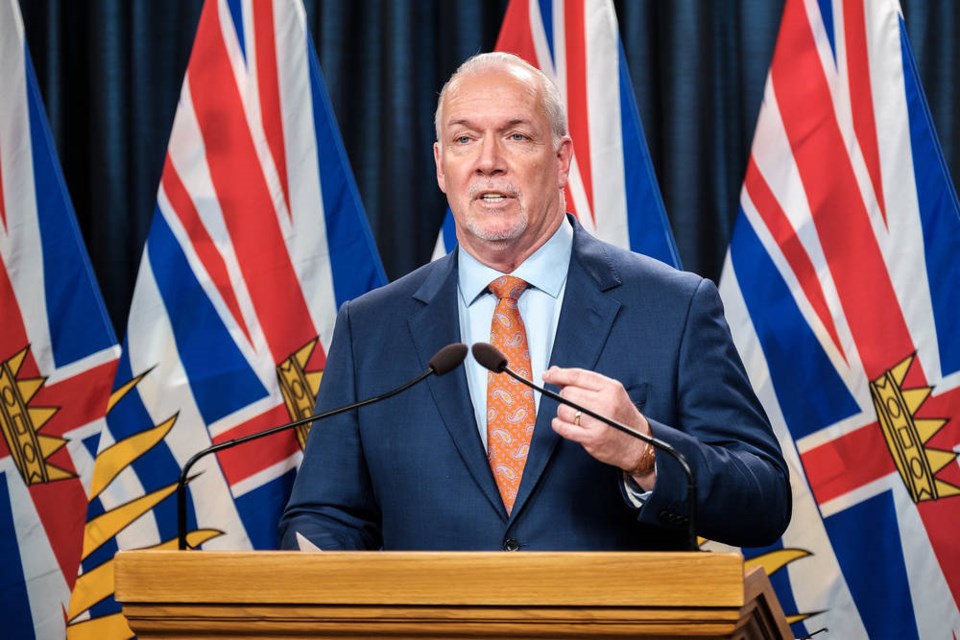People in their 20s and 30s have disproportionately faced some of the greatest challenges during the pandemic, including job loss, financial vulnerability, higher-risk work and impediments to launching their careers, says a University of British Columbia policy professor in the school of population and public health.
Yet that’s the same demographic Premier John Horgan targeted during Monday’s COVID-19 briefing, calling out 20- to 39-year-olds for putting the “rest of us in a challenging situation.” Horgan said: “My appeal to you is do not blow this for the rest of us. Do not blow this for your parents, and your neighbours and others who have been working really, really hard, making significant sacrifices so we can get good outcomes for everybody.”
The premier appeared to soften his message on Tuesday, taking to Twitter to thank “the vast majority” of young people for following the rules, and saying he was trying to reach “the few” who refuse to follow public-health restrictions.
Horgan said provincial health officer Dr. Bonnie Henry has expressed concern about increasing cases in those aged 20 to 39 and said indoor social gatherings are a major factor in recent transmission.
Data from the B.C. Centre for Disease Control indicate the demographic’s percentage of total cases has remained mostly stable when comparing Feb. 10-Dec. 31, 2020, with the first three months of this year, increasing only slightly, from 40.7 per cent to 41.1 per cent.
The age group, which makes up only about 30 per cent of the total population, has been over-represented in cases throughout the pandemic, according to 2020 data from Statistics Canada.
Backlash to the premier’s comments came quickly and fiercely, with many pointing out that younger adults often work public-facing jobs that put them at higher risk.
Paul Kershaw, policy professor in the school of population and public health at UBC, said while he thinks the premier and the province have generally done a good job managing the pandemic, Horgan’s recent comments overlooked the challenges of the past year that have disproportionately fallen on the shoulders of young adults.
“The virus has posed the greatest health risks to an older demographic, but the social distancing required to fend off the virus and prevent its spread has shifted economic vulnerability even further towards a younger demographic. And the younger demographic, in a moment of inter-generational solidarity, has stepped up to accept that,” said Kershaw, founder of Generation Squeeze, a national organization that amplifies the voices of young Canadians to address generational inequality.
Many young adults work in the service industry and have either lost work or are taking on greater risk than those who can work from home.
They’re often renters rather than homeowners, with smaller spaces and weaker financial supports from the provincial government, Kershaw said. “So there’s just added precarity for some of the younger people.”
They’re also an age group in which many have young children and found themselves trying to parent and facilitate online learning while working when schools shut down at the start of the pandemic.
And many of those at the younger end of the demographic have sacrificed a year of in-person post-secondary education for a “fundamentally different” learning experience online, Kershaw said.
Emily Lowan, director of campaigns and community relations at the University of Victoria Students’ Society, said many students are feeling disillusioned with online classes and are struggling to find well-paid work related to their studies. Last summer, co-op jobs were significantly limited and many students turned to low-paid service work instead, Lowan said.
“That was definitely a setback and a disappointment for a lot of students,” she said, adding those graduating are facing an economic downturn as they try to start careers. Lowan said many students reacted to Horgan’s comments with frustration, and for the premier to suggest the whole age group isn’t doing their part was “super unhelpful and disrespectful.”
Even if people in their 20s and 30s are driving transmission, targeting a specific group isn’t a strategy that’s likely to change behaviour, said Frederick Grouzet, an associate professor of psychology at the University of Victoria. In fact, it’s more likely to lead to opposition, he said.
A more effective approach is to start with empathy and show that you understand that it’s difficult to follow the rules before reminding everyone why it’s important to heed pandemic restrictions, Grouzet said.



